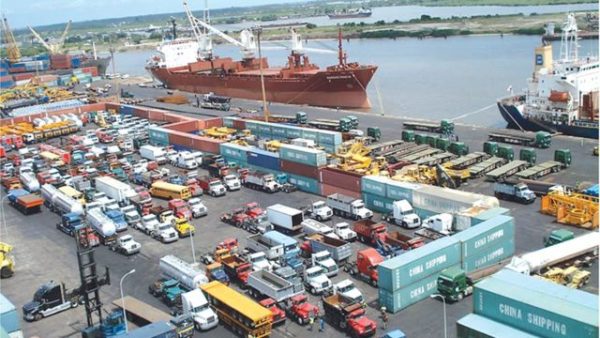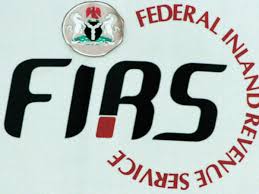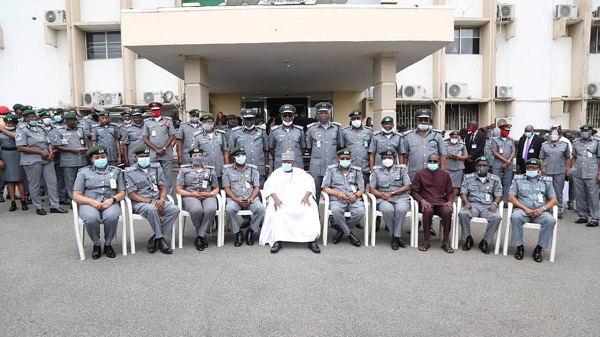SUEZ CANAL CRISIS: Rise In Shipping Costs, Others Wreck 2024 Maritime Opportunity Outlook
By Kingsley ‘Anaroke

*Banking, industrial goods, oil, gas beat marine prospects
*SAL accuses Maerskline of PSS imposition on shippers
*How Chinese holiday, Red Sea crisis disrupt supply chain
As the rising global shipping costs occasioned by Suez Canal crisis being a consequence of the Israeli-Hamas war in the Middle East continues to have heavy inflationary risk on maritime trade locally, experts have ruled out any serious prospect of growth in Nigeria’s maritime industry in 2024 fiscal year.
Sectors, however, identified with relatively strong prospect include, the banking, industrial goods, construction, oil and gas sectors of the economy.
These were part of the resolutions at the recent Cowry Asset Management’s webinar on 2023 Nigerian Economic and Financial Market Review and Outlook for 2024.
It was also predicted that the foreign exchange market is expected to remain volatile in first quarter of 2024 as the Central Bank of Nigeria (CBN) struggles to meet current market demands as well as arrears of unmet demand.
“The likelihood of a major improvement in supply within the first three months of 2024 is very slim as neither crude oil production nor foreign portfolio inflow is likely to increase. We therefore project further depreciation of the local currency in the early months of 2024.”
The team of experts led by the Group Managing Director, Cowry Asset Management Limited, Chief Johnson Chukwu beamed their periscope on equity market with conclusions that “The equities market gain 45.9% in 2023 and has already gained 17.65% as at close of trade on January 16, 2024. We believe that some counters may have appreciated beyond their fair value.
We therefore think that the Nigeria’s equities market will witness some southwards price adjustments in 2024 driven by factors which include, current over-valuation of many stocks beyond their intrinsic value; expected further increase in fixed income yields with the attendant portfolio rebalancing by Fund Managers as well as likely weak performance by many of the quoted companies due to the country’s harsh economic environment.
On the fixed income market outlook, they predicted higher inflationary trend, saying, “The Central Bank Governor’s declaration that CBN will focus on maintaining price stability and that the Central bank will cease from using unorthodox monetary tools should ordinarily imply that CBN will increase rates in the fixed income space as means to fight inflation as well as stabilize the exchange rates.
“We have however not seen this direction in the new year. Nevertheless, we expect that interest rates will trend northwards in Q2 2024. This is further reinforced by the pressure from International Monetary Fund,IMF for the monetary authorities to further increase interest rate,” they added.
This economic uncertainty, however, has fueled the agitation of Shippers’ Association of Lagos State(SAL) to the Executive Secretary of Nigerian Shippers’ Council(NSC) challenging what it described as arbitrary imposition of $300 Peak Season Surcharge(PSS)on cargoes from Asian ports to Nigerian ports by Maerskline shipping company and calling for the intervention of the NSC management.
In the letter dated January 15th, 2024, the President of SAL, Barr. Leo. Ogamba asserted that the charge was imposed on Nigerian shippers arbitrarily by the shipping company in their usual fashion waiting for negotiation afterwards.
“SAL woke up on 11th January, 2024 to read from newspapers the purported imposition of USD300PSS. In this circumstance, we resolved to bring to your notice this deliberate disregard to Nigerian Laws and or breach of due process pursuant to such increase by Maerskline .
He said this is no longer acceptable on the ground that members of SAL will not be coaxed to pay for Maerskline’s “Check points” in ocean routes which triggers disruptions coming from its reduced number of transits and in the circumstances decided to reroute their vessels around South Africa which in turn is also putting stress on its network.
“We know of fact that peak season is a period of increase in sales or demand,but the last we checked with the National Bureau of Statistics(NBS) disclosed that in the third quarter of 2023, there was more exports worth N23.3 trillion and total imports stood at N19.7trillion which indicate trade surplus of N3.5trillion.
SAL therefore noted that the $300 PSS was baseless and frivolous even as it flawed the due process while arguing that the trade surplus presupposes that there are cargo available for carriage upon reaching the import destination which has made the imposition of the PSS baseless and against the contract of affreightment.
According to Ogamba,” We use this medium to protest the exclusion of cargo owners in Lagos ably represented by SAL fro meetings where shipping company and terminal charges are discussed as shown during the discussion on re-nomination fee increase and the on-going terminal charges increase,just to mention a few.”
Meanwhile,the global explanation to the PSS could be that Shipping costs have risen by more than 300 per cent since November amid the disruption caused to freight in the Red Sea from attacks, according to fresh data.
Just hours after US and UK-led attacks on Yemen aimed at preventing renewed assaults on shipping by Iran-aligned Houthi rebels, oil costs rose sharply and it was revealed that freight prices continued to surge over the past weeks.
The most widely used measure of freight cost, the Shanghai Containerised Freight Index (SCFI), hit $3,101 (£2,429) per container from $2,871 (£2,249) last Friday, according to data given to Sky News by global logistics company DSV.
It meant that the SCFI, which measures the average cost of a 20ft-long container being shipped from Shanghai to Europe, was 310 per cent up on the level seen at the start of November.
Marked increases started to be felt in the second half of that month as the Red Sea crisis intensified.
There have been more than two dozen attacks by Houthis on shipping, forcing major container and energy firms to re-route around Africa, avoiding the Suez Canal.
That has added many costs to freight as Insurance bills are up as a result while journeys can take more than 10 days extra.
Staff wage costs have risen as a result and additional fuel must be burned.
Another factor at play is an increase in demand for goods ahead of disruption caused by the Chinese Spring Festival – the country’s New Year holiday which gets under way next month.
Yemen’s Houthi rebels have stepped up attacks on vessels it believes are heading into and out of Israel, claiming they are aimed at ending the air and ground offensive on the Gaza Strip following the 7 October attacks by Hamas.
US and UK forces attacked several targets in an air operation on Thursday night in a bid to prevent further boat and drone-led attacks on shipping.
They fear damage to the global economy due to the delays and additional costs associated with avoiding the Suez Canal.
Many of the world’s largest shipping companies – including MSC, Maersk, CMA CGM, and Hapag-Lloyd – are still diverting many if not all planned Red Sea journeys via South Africa.
While many major companies, including Tesco in the UK, have said they are not experiencing damage from the disruption, other firms have been more vocal about the challenges.
IKEA, for example, has admitted that some products may not be available while Tesla revealed on Friday that it was pausing production at its factory in Germany for two weeks due to a shortage of parts.
While shipping costs are up markedly, they remain below the highs seen in March 2021 when the Ever Given container ship blocked the Suez Canal.
Nevertheless, the disruption has caught the eye of the governor of the Bank of England, who is charged with keeping the pace of price rises in check. (With reports from SkyNews).







